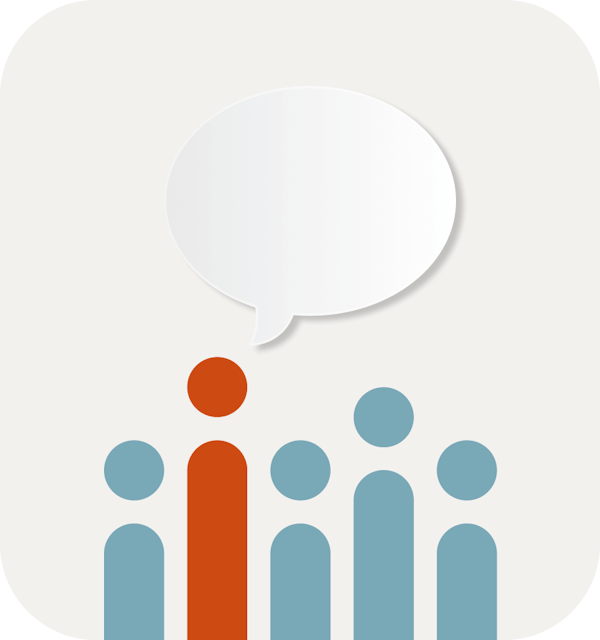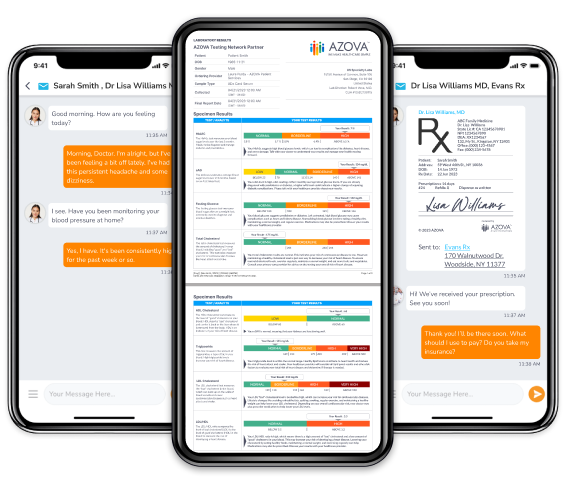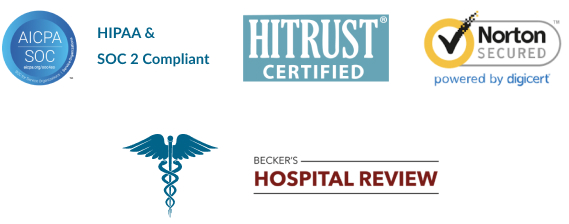Reliable seasonal allergy treatment, just a click away.
Connect with a board-certified healthcare provider for allergy relief via a quick, secured video visit or messaging. Receive a diagnosis and treatment plan, all without leaving home.
Available in all 50 states.

Understanding allergies
Allergies affect a significant portion of the U.S. population, affecting nearly one in three people¹. They occur when the immune system mistakenly identifies harmless substances, like pollen or pet dander, as threats.
In response, it produces antibodies that trigger allergic reactions, ranging from mild discomfort to potentially life-threatening conditions. This overreaction to benign substances can significantly impact quality of life for many individuals.
- Allergy symptoms in adults
- Allergy symptoms in children
- Allergy causes in adults and children
- Allergy treatments for adults
- Allergy treatments for children
Allergy symptoms in adults2
Symptoms can vary widely depending on the type of allergy. Here are the common ones:2
- Pollen and pet dander allergies often cause sneezing, itchy and watery eyes, runny nose, congestion, and a sore throat. Persistent congestion can lead to mouth breathing and a cough.
- Anaphylaxis is a severe, life-threatening allergic reaction. Symptoms can appear rapidly and include difficulty breathing, chest tightness, hives, swelling of the face or throat, rapid heart rate, dizziness, and nausea
It’s essential to recognize these symptoms and seek medical attention if you experience severe reactions.
Allergy symptoms in children3
A child may have allergies if they experience persistent symptoms like itchy, watery eyes, runny nose, or skin issues like eczema or hives. Respiratory symptoms such as wheezing, coughing, or difficulty breathing might also indicate allergies. Additionally, behavioral changes like irritability or fatigue could be allergy-related.
Common allergens for children include pollen, pet dander, and dust mites. Keeping a symptom log can help identify potential triggers. If you suspect your child has allergies, consult a pediatrician for proper diagnosis and treatment.
Allergy causes in adults and children
Scientists aren’t entirely sure why our bodies overreact to harmless substances like pollen or dust. However, several factors2 might play a role in both adult and pediatric allergy development:
- Age: The risk of developing allergies increases with age.
- Genetics: Allergies often run in families.
- Hormones: Changes in hormone levels, especially in women, can affect allergy risk.
- Immune system: A weakened immune system might contribute to allergies.
Allergies can also be triggered by various substances, depending on how you come into contact with them:
- Contact allergies: Occur when your skin touches an allergen, like poison ivy, latex, or certain metals.
- Inhaled allergies: Triggered by substances in the air, such as pollen, pet dander, mold, or dust mites.
Allergy treatments for adults3
The best way to manage allergies is to avoid triggers. When this isn’t possible, there are treatment options.
Medications can help control symptoms. Common types include antihistamines, corticosteroids, and decongestants. It’s essential to consult a healthcare provider for the best treatment plan.
For severe, life-threatening allergies (anaphylaxis), an epinephrine auto-injector (like EpiPen) is crucial. This emergency medication should be used immediately and followed by seeking medical attention.
Consider using AZOVA Virtual Urgent Care for mild to moderate allergy symptoms, such as itchy eyes, runny nose, or mild skin reactions. This can save you time and exposure to others, while still getting professional medical advice.
Allergy treatments for children3
Identify allergens and minimize exposure. This may involve staying indoors during high pollen counts, using air conditioning, or showering after outdoor activities. Control allergens at home by reducing dust, using dehumidifiers, and cleaning regularly.
Over-the-counter options like antihistamines and nasal sprays can help manage mild symptoms, but consult your child’s pediatrician before starting any new medication, especially for children under 4. For more severe allergies, your child’s doctor may prescribe stronger medications like corticosteroids or decongestants.
Consider using AZOVA Virtual Urgent Care for mild to moderate allergy symptoms, such as itchy eyes, runny nose, or mild skin reactions. This can save you time and exposure to others, while still getting professional medical advice.
Don’t suffer through sniffles. Get treatment for seasonal allergies today.
References
¹ Ng AE, Boersma P. Diagnosed allergic conditions in adults: United States, 2021. NCHS Data Brief, no 460. Hyattsville, MD: National Center for Health Statistics. 2023. DOI: https://dx.doi.org/10.15620/cdc:122809.
2 Harvard Health Publishing. (2024, February 9). Allergy overview: A to Z. Harvard Health Publishing. Retrieved from https://www.health.harvard.edu/a_to_z/allergy-overview-a-to-z Reviewed by Howard E. LeWine, MD, Chief Medical Editor.
3 Colbert, T. (Author), & Gill, K., M.D. (Medical Reviewer). (2024, February 28). Common allergies in kids to watch out for. Healthline. Retrieved from https://www.healthline.com/health/common-childrens-allergies#pet-allergies
Need help or have questions?
Contact our AZOVA Customer Support team below
Live 24/7 chat
(quickest response)
You can chat with AZOVA’s Customer Support team for comprehensive support, including help with your account, testing, shipping, and results.
We typically respond within 5 minutes. Click the messaging icon on the lower right corner of the page to get started.



